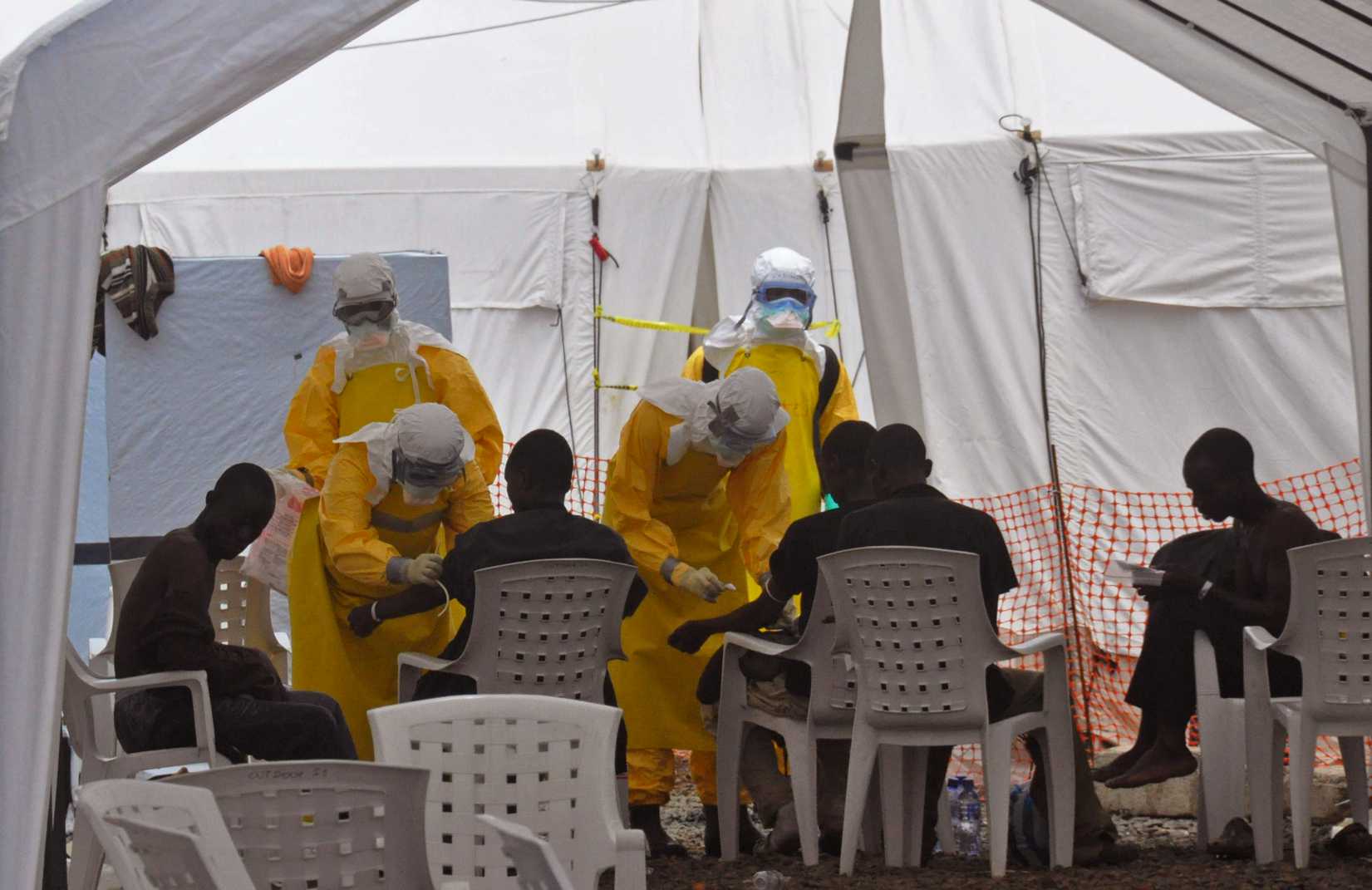
The World Health Organization (WHO) says responders to the Ebola outbreak in West Africa need to prepare to scale up their efforts three to four times as the number of cases sees an “exponential increase” over coming weeks.
The U.N. body has been assessing the situation in Liberia, and outlines a desperate situation there and in other countries with a high rate of disease transmission in a statement released on Monday.
“As soon as a new Ebola treatment facility is opened, it immediately fills to overflowing with patients, pointing to a large but previously invisible caseload,” the WHO stated. “Many thousands of new cases are expected in Liberia over the coming three weeks.”
About 4,000 people have been confirmed infected with Ebola since the outbreak started in March, and around half of these have died. Guinea and Sierra Leone have been hard hit, but Liberia has recorded the highest cumulative number of reported cases and deaths. The transmission rate there remains perilous and in Montserrado county, which includes the capital Monrovia, “only half of the urgent and immediate capacity needs could be met within the next few weeks and months.”
The massive pressure on health facilities is aggravating the risk for further contagion. Sick people and their relatives are shuttling through the city in taxis, searching in vain for available hospital beds. Since Ebola is transmitted through bodily fluids such as blood and sweat, the lack of disinfection of these vehicles have turned them into a “hot source” for spreading the disease, according to the WHO.
At an emergency African Union meeting in Addis Ababa on Monday, officials said that measures to curb the outbreak such as border closures, flight bans and extensive quarantines had created a sense of siege in the worst-hit West African countries. Public health officials have previously deemed the closure of porous borders ineffective, and it has been pointed out that bans on transportation — most notably flights to and from the continental airport hubs in Nairobi and Johannesburg — are not only taking a severe economic toll on these stricken nations, but making aid deliveries more difficult.
African Union Chairwoman Nkosazana Dlamini-Zuma said thorough border checks for people displaying Ebola-like symptoms should replace blanket bans on people arriving from Sierra Leone, Liberia and Guinea, but that the decision should be made by the individual countries themselves, the Wall Street Journal reports.
“We are not working on schedules, whether you will lift [the ban] tomorrow or this evening. We are working on principle decisions, which we expect our member states to implement,” Dlamini-Zuma said. “The decision was that it must be urgently done.”
Senegal officials announced at the meeting that they would allow humanitarian aid to pass through its closed borders.
Medics at the Ebola treatment unit in Monrovia’s JFK Hospital suit up in protective gear before attending to their patients.
More Must-Reads from TIME
- Why Trump’s Message Worked on Latino Men
- What Trump’s Win Could Mean for Housing
- The 100 Must-Read Books of 2024
- Sleep Doctors Share the 1 Tip That’s Changed Their Lives
- Column: Let’s Bring Back Romance
- What It’s Like to Have Long COVID As a Kid
- FX’s Say Nothing Is the Must-Watch Political Thriller of 2024
- Merle Bombardieri Is Helping People Make the Baby Decision
Contact us at letters@time.com